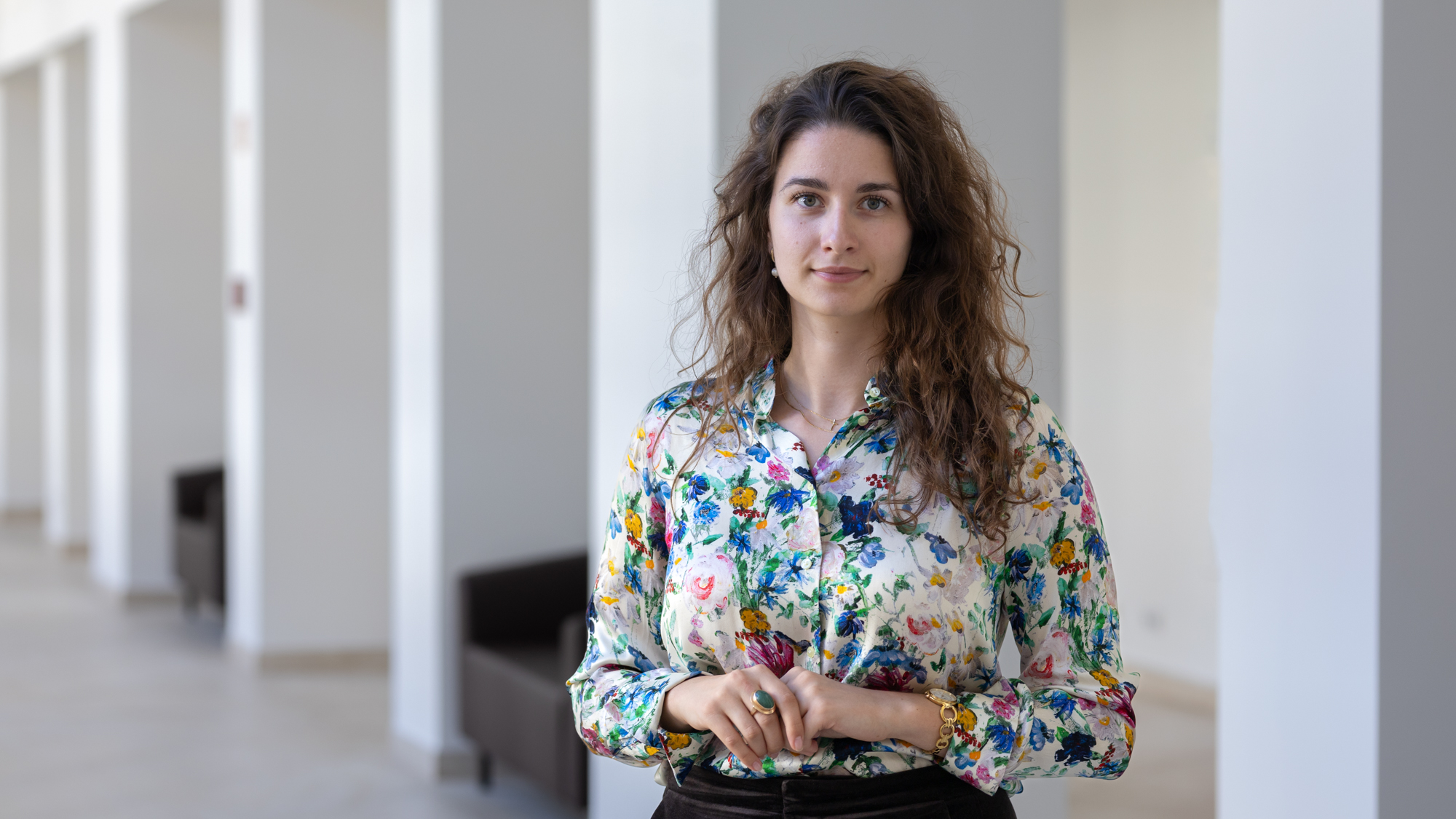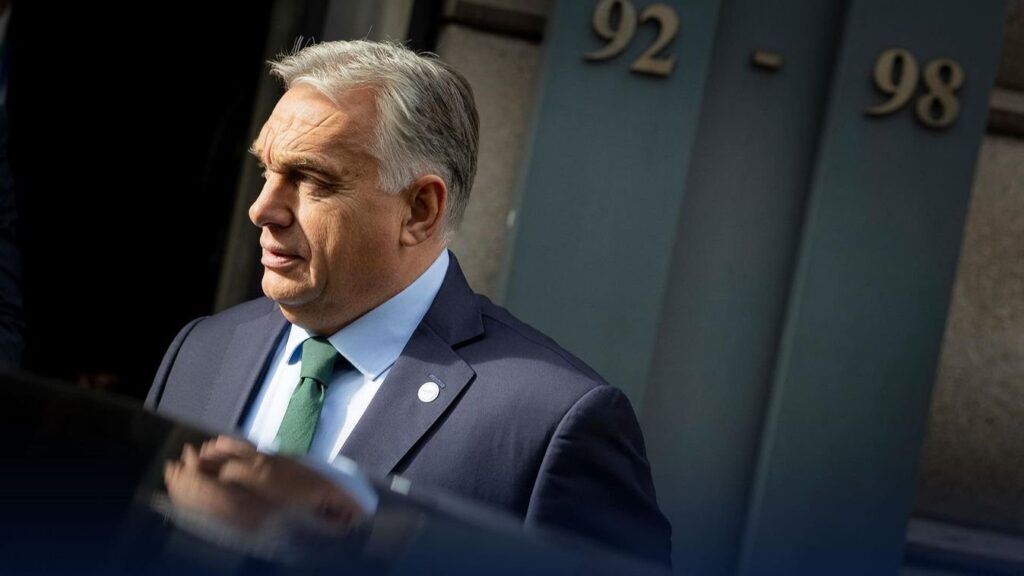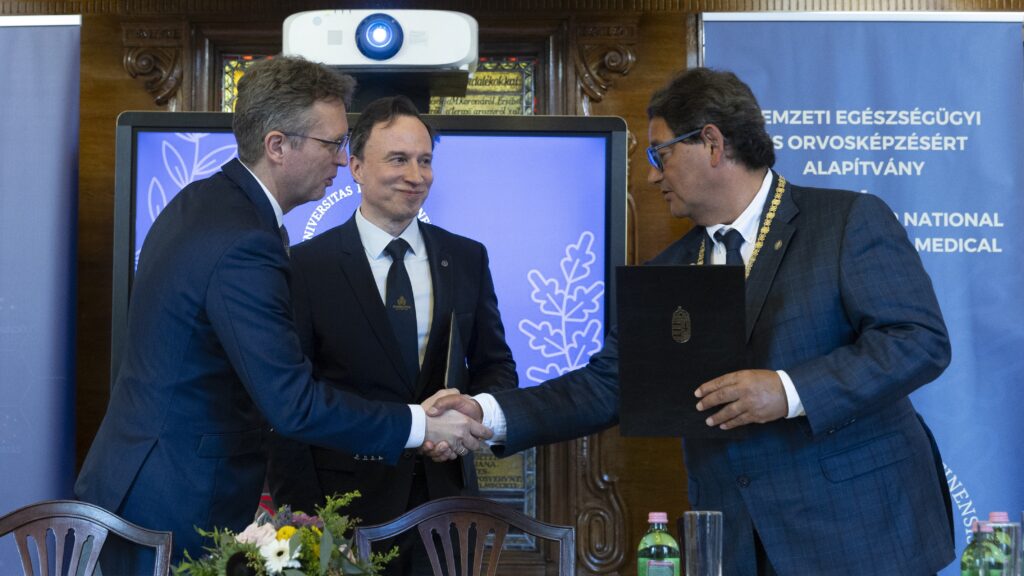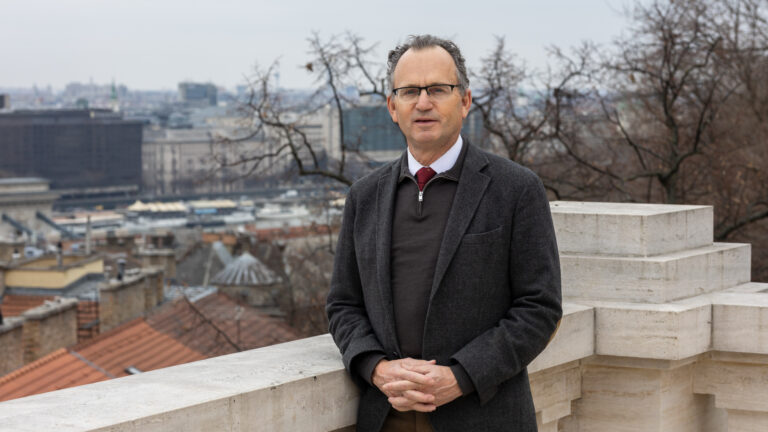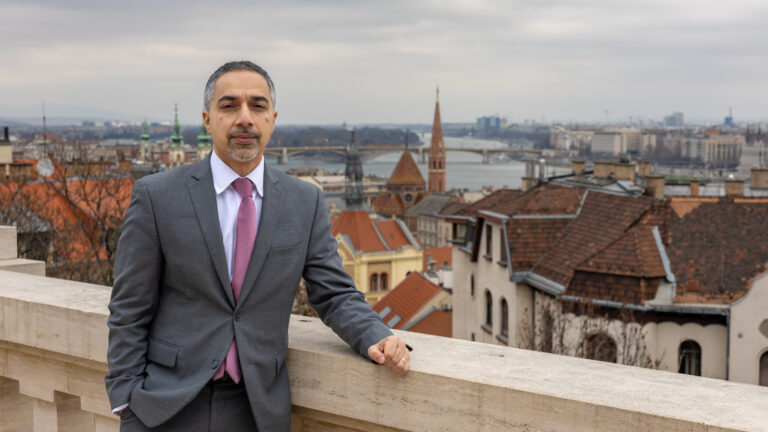Liliana Śmiech is the Director General for International Affairs at the Ludovika National University of Public Service. She sat down with Hungarian Conservative to discuss the establishment of the Centre for Turkic Studies at the university, outlining its role in providing the intellectual foundation for Hungary’s expanding economic and cultural ties to the region. In the conversation, she highlighted the importance of energy diversification through partnerships with countries such as Azerbaijan and Kazakhstan, the Centre’s dual mission of education and research, and Hungary’s bridging role between East and West in an era of shifting global dynamics.
***
The new Centre for Turkic Studies at Ludovika University was inaugurated on 22 September. My question has two parts: Why now, and what are the main goals?
Why now? I would say the timing could not be better. We are living in an era of profound transformation, global dynamics are shifting, the world order is being redefined, and Hungary has positioned itself as a bridge between East and West. The Turkic countries, as a collective, have also become far more influential, not only for Hungary but for the entire European Union.
The Russo–Ukrainian war clearly exposed the weaknesses of Brussels’ economic and energy policies, especially the overreliance on a single supplier. In this context, our partners in the Turkic world play a key role in supporting Europe’s energy diversification. Azerbaijan, through the Southern Gas Corridor, and countries such as Kazakhstan, Turkmenistan, and Uzbekistan are becoming central players in oil, gas, and uranium supply.
At the same time, Hungarian businesses have become increasingly active across the Turkic world, and our economic and cultural ties have grown remarkably over the past decade. What was still missing, however, was an academic foundation, something to complement these existing dimensions of cooperation. The Ludovika Centre for Turkic Studies was created precisely to fill that gap: to serve as the academic backbone for Hungary’s engagement with the Turkic world.
As for the Centre’s goals, we are working along two main lines. The first is education. We want to prepare our students with in-depth knowledge of the region, its economy, geopolitics, and culture, while also offering the opportunity to learn Turkic languages. Over time, our ambition is to teach all major Turkic languages and to establish a joint master’s programme with our partner universities. Of course, such initiatives require time and coordination, especially regarding accreditation, but this is clearly our long-term direction.
The second dimension is research. The Centre aims to become a hub for scholars, researchers, and policymakers interested in the Turkic world, from all around the world. We will facilitate exchanges, publish analyses, and organize conferences and policy dialogues.
Ultimately, our mission is to enhance understanding of the Turkic world’s growing strategic role, not only for Hungary, but for the future of Europe as a whole, and to demonstrate how Hungary itself plays a crucial role in connecting these regions and shaping this dialogue.
We often hear that Hungary serves as a bridge between the West and the East, particularly in relation to Central Asia. Yet what is less often discussed is how this bridging role can bring real, tangible benefits to ordinary people…
That’s a very good question. In the short term, it’s not always easy to see direct results from foreign policy or international cooperation. But over time, this bridging role brings concrete advantages. Hungary’s ability to maintain dialogue with both East and West, and to build strong bilateral relations with key global players, translates into real outcomes, investments, job creation, and economic growth.
It also means more opportunities for people to connect: students can study abroad, researchers can exchange ideas, and professionals can collaborate across borders. These are the kinds of links that strengthen societies in the long run.
For ordinary citizens, the most visible impact is indeed in the labour market. Hungary has become an attractive destination for foreign investment, while Hungarian companies are also gaining ground in the Turkic world. And when it comes to energy, our cooperation with partners in the East helps ensure stability and diversification, which ultimately means more secure and affordable energy for Hungarian families.
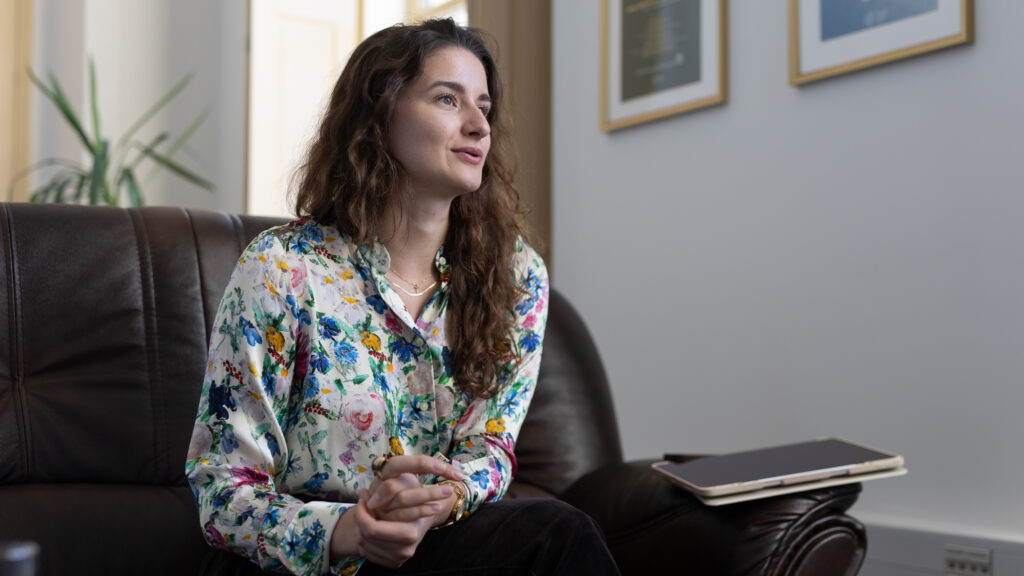
Hungary was the first European Union member state to recognize the unique opportunity of opening to the Turkic world. As geopolitical realities are changing, do you foresee other EU countries following this lead?
I think we can already see a gradual shift. The entire European Union is slowly waking up and realizing the importance of the Turkic world, but Hungary was undoubtedly the pioneer in this regard. When Hungary first launched its Eastern Opening policy, it faced a lot of criticism, and the idea was not particularly popular. Yet today, what Hungarian leaders were saying years ago has proven to be remarkably forward-looking.
Hungary’s strength lies in consistency. When Hungary makes commitments, it follows through, and that’s exactly what our partners value. Western European countries often find it more difficult to maintain a strategic approach, which makes cooperation more difficult, especially in areas such as energy. You cannot plan a gas pipeline or infrastructure project for just one or two years; these are investments that span decades.
Another difference is that the EU often attaches political or ideological conditions to economic cooperation, linking it to human rights or sexual minority rights, which may not always be relevant or productive when the focus is on energy security or economic development. Hungary, by contrast, approaches these partnerships pragmatically, based on mutual respect and shared interests.
Beyond the EU, the region is seeing growing US influence after the Armenia–Azerbaijan agreement, alongside Russia, China, and Iran. How should Hungary navigate this great-power competition?
Hungary is a medium-sized country with an influence that often exceeds its size, thanks to its strategic location, its EU and NATO membership, the credibility that comes with both, and, importantly, its excellent leadership. I believe it’s not so much about navigating between competing powers as it is about building balanced, constructive partnerships. The countries of the Turkic world each have their own priorities, dependencies, and strategies. What matters most is to engage with them respectfully and on a mutually beneficial basis, so that cooperation produces tangible results for all sides.
Hungary’s particular strength lies in its clarity of purpose. It consistently prioritizes its national interest, the well-being and security of its citizens, above all else. That pragmatic approach allows Hungary to maintain constructive relations with a wide range of partners. In fact, this kind of realism is increasingly visible elsewhere, including in the United States, where national interest is once again becoming a guiding principle. This shared outlook makes it easier for Hungary to work with various actors while keeping its foreign policy balanced, credible, and focused on practical outcomes.
Just yesterday, the annual summit of the Organization of Turkic States concluded. Prime Minister Viktor Orbán remarked that the OTS has what the EU lacks: energy security, cooperation grounded in mutual respect, and economic growth. How do you see the dynamics of relations along this axis (EU–Hungary–OTS) evolving over the next five to ten years?
The European Union is a complex subject because, to be honest, no one can say with certainty how it will evolve in the coming years, and looking a decade ahead, it may not exist in the same form as today. What is clear, however, is that change is needed. The difficulty is that when you point this out, you are often branded a Eurosceptic instead of a Euro-realist, and that in itself reflects part of the problem.
What we are witnessing now is that many of the positions Hungary took years ago are gradually becoming reality. Hungary consistently argued that energy policy must be grounded in realism rather than ideology, and that is exactly what we are seeing across Europe today. When we look at developments in other member states, Czechia, parts of Poland, and the Netherlands, we can observe similar patterns emerging. I wouldn’t yet call it a ‘right-wing wave’; it’s too early for that. But there is clearly a shift underway. If this trend continues, Hungary’s position within the EU could strengthen further, supported by its growing political family in the European Parliament and by an increasingly influential voice in European debates.
At the same time, Hungary’s role within the Organization of Turkic States (OTS) is steadily expanding. During the inauguration of our Centre on 22 September, State Secretary Zoltán Kovács openly stated that Hungary is interested in becoming a full member of the OTS. Naturally, the European Union and the OTS are very different frameworks, with distinct purposes, structures, and priorities. On the contrary, Hungary’s experience shows that engagement with the Turkic world can complement our EU membership and contribute to broader regional stability and cooperation.
My view is that we should focus more on practical, economic cooperation, areas that bring tangible benefits, rather than on overly ideological or politicized agendas that risk undermining competitiveness. In this context, deepening economic ties within the OTS should be a clear priority.
That said, the two entities are not directly comparable. As one of our conference guests rightly noted, the OTS is not a ‘bloc’ but rather a rising configuration of cooperation and influence. The outlook for the OTS is promising. For the EU, reforms are essential, and they must be implemented. The real question is whether there will be sufficient political will among the EU’s leadership to make that happen.
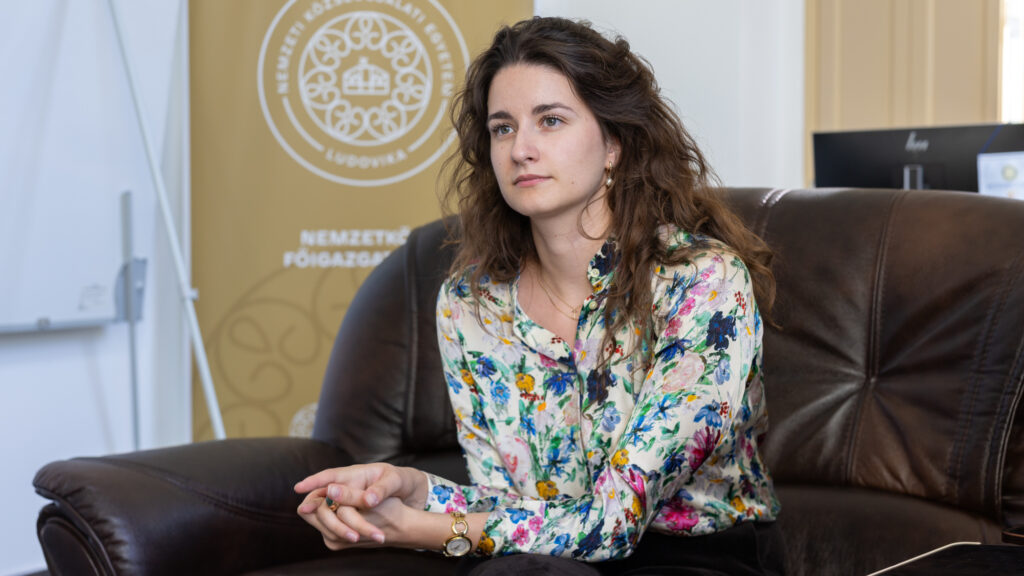
Prime Minister Orbán has also called for a Visegrád Four–Turkic Council joint summit. Do you see this taking place in the near future?
Yes, I believe it is entirely possible. With recent political changes in the Czech Republic and Poland, the Visegrád Group seems to be entering a kind of renaissance. Of course, time will tell, and I wouldn’t want to make any premature predictions, but the outlook is certainly promising. Such a meeting would make perfect sense. The V4 countries share many common interests, and there is growing awareness across Central Europe of the Turkic world’s strategic significance in areas such as energy, connectivity, and trade. So yes, I can certainly imagine a V4–Turkic Council summit taking place in the foreseeable future.
Looking ahead, what would you consider a success for the Centre in the next five to ten years?
As a university, our foremost responsibility is to educate future civil servants and leaders. For me, success means preparing a new generation of professionals who understand both the Turkic world and Hungary’s strategic interests, individuals who can represent our country effectively in diplomacy, business, and other spheres of public life. Secondly, I would like the Centre to evolve into a genuine hub for dialogue and exchange, a place where the most important discussions about the Turkic world take place, building on Ludovika’s strong academic foundations and historic mission of serving the public good. Finally, I want to see our academic networks grow stronger, not only between Hungary and the Turkic world, but also across Central and Eastern Europe. Hungary, and Ludovika in particular, can become a regional leader in building these connections and advancing joint research, education, and development projects with our Turkic partners.
Related articles:

